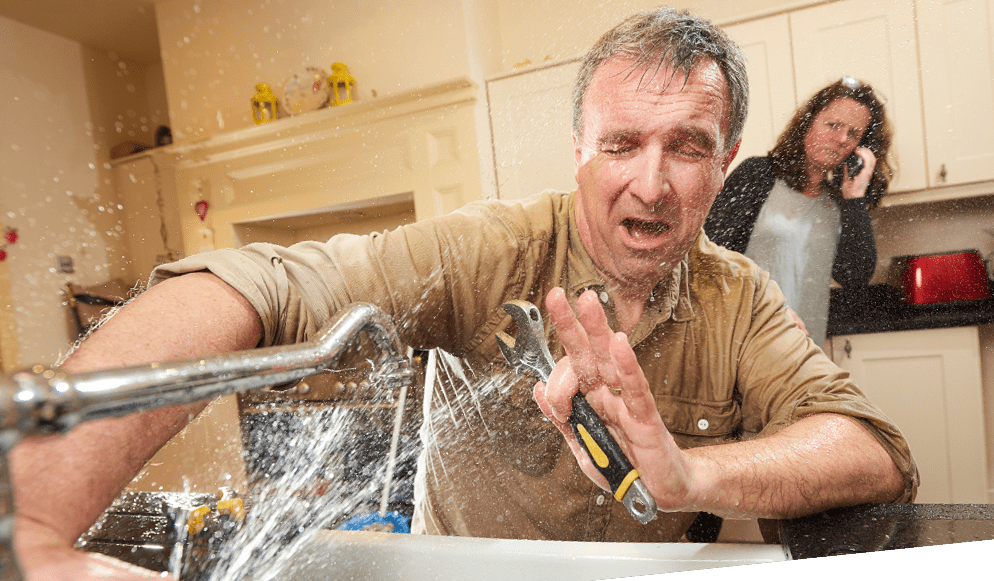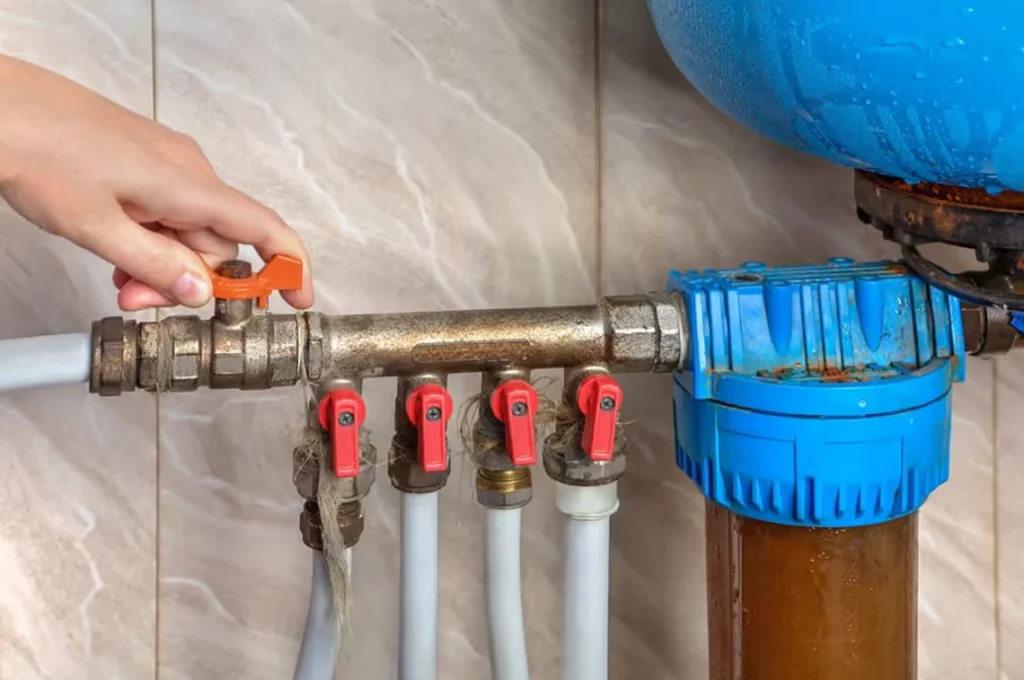Quick Solutions for Critical Situations Until Support Arrives
Quick Solutions for Critical Situations Until Support Arrives
Blog Article
In this article further down you will discover lots of sound answers involving What to Do While Waiting for an Emergency Plumber.

Pipes emergency situations can strike at any moment, creating stress and possible damages to your home. Whether it's a burst pipe, a clogged up drain, or a dripping faucet, understanding just how to handle the circumstance until a specialist plumbing shows up can save you from additional difficulties. This article supplies essential emergency situation pipes suggestions to aid you mitigate damages and reclaim control during a plumbing situation.
Turn Off the Water
The first step in any kind of plumbing emergency is to shut down the water supply. For localized concerns, such as a leaking tap or toilet, switch off the valve near the fixture. When it comes to a major leakage or ruptured pipe, situate your home's main water shut-off shutoff and turn it off right away. Knowing the place of these shutoffs ahead of time can save useful time during an emergency.
Shut down Your Hot Water Heater
In certain emergency situations, such as a burst pipeline, it's important to shut down your water heater. This stops getting too hot or damage to the system when water quits flowing. Turn off the power supply to the water heater (electric or gas) and allow it cool to stay clear of potential hazards.
Momentarily Stop a Burst Pipe
A burst pipe can result in significant water damage in minutes. To reduce the problem:
Call a specialist plumbing professional promptly to attend to the issue completely.
Have an Emergency Pipes Set
Prepare a basic plumbing emergency situation set to handle small issues successfully. Your kit ought to include:
Having these devices on hand can make a substantial distinction in your ability to take care of emergencies.
Unclog Drains Securely.
A clogged up drain can be an irritating and untidy issue. Below's how to tackle it:.
If these techniques do not work, prevent using extreme pressure, as it may aggravate the blockage.
Manage Overflowing Toilets.
An overruning commode can cause instant chaos. Right here's what you must do:.
Address Little Leakages with Short-term Repairs.
Tiny leaks can swiftly end up being substantial troubles if left unchecked. Utilize these short-lived fixes up until specialist help arrives:.
While these fixes aren't long-term, they can aid reduce water loss and damage.
Manage Frozen Piping Thoroughly.
In chillier environments, frozen pipes are a common emergency. If you presume an icy pipeline:.
Know When to Call a Specialist.
While quick fixes can aid momentarily, particular plumbing problems need prompt specialist focus. Call a plumbing professional if:.
Immediately speaking to an expert makes sure the problem is solved appropriately and protects against additional problems.
Avoid Further Damage.
Taking quick action to reduce damage can save you money and time in the future. Right here's just how:.
Conclusion.
Pipes emergency situations can be frustrating, yet with the ideal knowledge and tools, you can take care of the circumstance efficiently till assistance arrives. By turning off the water, addressing tiny leakages, and using short-lived repairs, you can reduce damages and maintain your home safe. Remember, these pointers are momentary services; constantly consult a qualified plumbing technician to take care of the source of the problem. Prep work and quick reasoning are your finest allies in any kind of plumbing emergency situation.
8 Helpful Tips for Managing Plumbing Emergencies at Home
If your plumbing system hasn’t failed once, wait for it because almost everyone has a story to tell. Sometimes, it could be simple emergencies such as a leaking pipe, a blocked cistern, or even a big burst pipe. In situations like this, you need to have some handy tips to save you some money and from possible damages.
Take care of minor issues early.
Sometimes, you could have avoided an emergency by taking proactive measures while it was still early. Some major plumbing emergencies can be a result of an ignored minor issue. We recommend that you have items like plumbing tapes and other related items. A plumbing tape can allow you to manage minor leaks before the plumber arrives.
Cut off the water supply.
This tip is essential in almost any type of leakage problem. For problems like minor leakages in the toilet or kitchen, turn off the supply that takes water to the affected pipes. If the leakage is a major pipe, you must shut off the supply valve to the entire building. This will help you avoid flooding your home and neighbors if you share a flat.
Know your plumbing system
Folks typically move into a new apartment without understanding the water supply around the building. This can prove disastrous if a water emergency arises and the plumber is far away. The previous tip will prove useless if you don’t practice this one. More importantly, know where your water shut-off valve is located – you’ll need that knowledge to prevent potential home floods.
Have some common handy tools
There are lots of plumbing emergencies that you can handle without hiring a plumber. That’s why you must keep some tools available always. Some tools that you can use to fix simple plumbing emergencies easily include plumbing tapes, screwdrivers, thread seal tapes, plungers, pliers, tape measures, and rubber gloves.
Insulate your pipes from cold
You’ll save yourself from many plumbing expenses if you protect your water pipes from the cold. This is because of the harmful effects that cold weather can have on your pipes. During winter, your pipes can burst from being overly expected to freezing temperatures. So, make sure insulators are there to keep the pipes working correctly.
Avoid practices that will clog your toilet.
Many people indulge in practices that can damage the plumbing system of the entire building. One of these is when they use their toilet to dispose-off garbage. They flush all kinds of things, such as paper towels, bandages, hairs, female sanitary products, etc., down the toilet. This will block your toilet in the long run, incurring unnecessary expenditures. Dump such waste in the trash instead.
Check your dials regularly.
Sometimes, there could be leakages in your home without noticing them in time. So, constantly monitor your water meter dial. If the dial is reading when there is nobody using water, this is an indicator that there is leaking. Check for leaks immediately. Call a plumber as soon as possible if you can’t find any.
https://www.constructionplacements.com/8-helpful-tips-for-managing-plumbing-emergencies-at-home/

I hope you enjoyed reading our part about What to Do While Waiting for an Emergency Plumber. Thank you for finding the time to read through our content. Feel free to set aside a second to distribute this blog post if you appreciated it. Thanks a bunch for your time. Return soon.
Book Report this page